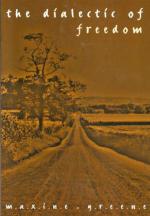|
This section contains 9,675 words (approx. 33 pages at 300 words per page) |

|
SOURCE: "Dewey, Ethics, and Rhetoric: Toward a Contemporary Conception of Practical Wisdom," in Philosophy and Rhetoric, Vol. 16, No. 3, 1983, pp. 185-207.
In the following essay, Johnstone finds similarities between the interrelation of ethics and rhetoric in the writings of Aristotle and Dewey.
Rhetoric and wisdom are often linked in discussions of the practical functions of speech. For Plato, a genuine art of rhetoric is rooted in wisdom—in knowledge of the true Forms of things—and serves to communicate this knowledge to others.1 Aristotle views rhetoric both as an exercise of practical intelligence and as generative of practical wisdom.2 In the Ciceronian scheme, wisdom without the aid of eloquence is essentially useless, while eloquence without wisdom is deemed harmful.3 Recent inquiries have sought to illuminate further the relationship between these two ideas. Lloyd Bitzer writes that "rhetoric at its best sustains wisdom in the life of the public."4 Kneupper...
|
This section contains 9,675 words (approx. 33 pages at 300 words per page) |

|


